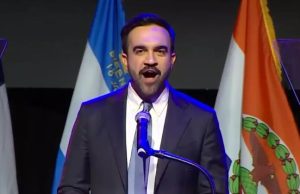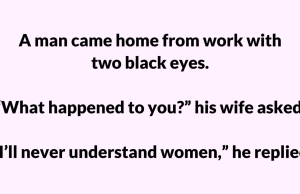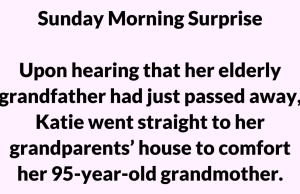
A millionaire finds his pregnant ex-wife waiting tables at a restaurant and freezes. Imagine for a moment that you are one of the richest men in the country, that your name appears on the covers of business magazines, that you have everything money can buy, and suddenly, in a small neighborhood restaurant, you come face to face with the only person you ever truly loved, the same person you lost due to your obsession with success.
But now she’s pregnant, waiting tables, and wearing a wedding ring that isn’t the one you gave her. This is the story of Ricardo Mendoza, a 42-year-old construction magnate who had everything, except the one thing that truly mattered.
It all began one rainy October afternoon in Madrid, when Ricardo decided to take shelter from the storm in a modest family restaurant in the Malasaña neighborhood. He had been at a business meeting that ran longer than expected, and the rain caught him without an umbrella or a chauffeur.
Fate, that cruel master who plays with our lives, pushed him toward the fogged-up glass door in Elena’s corner. At first, Ricardo didn’t look up from his phone. He was answering important emails, closing million-dollar deals from a restaurant table that probably cost less to feed in a month than he spent on a business dinner. The aroma of homemade spices and the murmur of family conversations contrasted starkly with his world of glass and steel, of meetings in skyscrapers and dinners at Michelin-starred restaurants.
That’s when he heard that voice, that voice he’d heard whispering “I love you” in the darkness of his bedroom, that had cried out with happiness on their wedding day, and that had also told him, “I can’t take it anymore, the night that’s gone forever.”
His heart stopped before his mind could process it.
“What do you want to drink?”
Ricardo looked up slowly, as if he knew what he was about to see would change everything. And there she was, Carmen.
His Carmen, but she was no longer his Carmen. Her eyes were still the same honey-colored color that had captivated him 15 years earlier, but now they held a maternal sweetness he’d never seen before. Her brown hair, once perfectly styled to complement social events, was now tied back in a practical ponytail. And her belly, her rounded belly beneath the restaurant apron, told a story he hadn’t written. The silence stretched between them like an abyss.
Carmen paled. Her hands trembled slightly as she held the order pad. Ricardo remained completely still, as if any movement could make this vision vanish. The other diners continued their conversations, oblivious to the drama unfolding at the corner table.
“Carmen,” Ricardo whispered, his voice sounding strange even to himself, broken, vulnerable. He hadn’t spoken her name out loud for years.
She closed her eyes for a moment, breathed deeply, and when she opened them again, she’d recovered some of her kenoucher.
“Hello, Ricardo. What are you doing here?”
The question floated in the air, heavy with the history they shared.
Ricardo looked around, aware for the first time how out of place he looked in his Italian designer suit amidst this simple and welcoming setting.
“I took shelter from the rain,” he murmured, sensing the absurdity of the answer.
Carmen nodded. Professional, distant. “What would you like to order?”
That formality hit him like a slap in the face. After eight years of marriage, after promises of eternal love, after having planned a life together that never materialized, she was speaking to him like any other customer.
But perhaps that was exactly what he was now, a stranger.
“Carmen,” Ricardo began, but she interrupted him gently but firmly. “Mr. Mendoza, I have other customers waiting. You’ve decided what you’re going to order.”
The use of his last name was like a knife to his chest. Ricardo studied her face, searching for any crack in that mask of professionalism, any vestige of the love they once shared.
His eyes inevitably fell on her stomach.
He mentally calculated, six, maybe 7 months.
“How far along are you?”, the question escaped before he could stop it.
Carmen tensed. “That’s none of your business.”
Her right hand instinctively moved toward her belly in a protective gesture that Ricardo recognized. It was the same gesture she’d made years ago when they lost their baby at four months pregnant. The baby who had been the final straw in their failed marriage.
The memory hit him hard. He remembered that terrible night when Carmen came home from the hospital alone because he’d been at a crucial meeting that couldn’t be postponed.
He remembered how she’d sat on the couch in their 20-room house amidst all the luxury he’d built for her and told him she didn’t know who he was anymore, that the man she’d fallen in love with had disappeared somewhere between the first million and the tenth.
Carmen tried again, but a male voice interrupted. “Honey, everything’s okay over here.”
Ricardo looked up and saw a man about his age approaching the table.
He was dark-skinned, robustly built, with the calloused hands of someone who works with them and a genuine smile that faded as soon as he saw the tension on Carmen’s face. He wore the same apron as her, and it was obvious he worked at the restaurant.
Miguel, that’s him. Carmen. He hesitated, and Ricardo could see the internal struggle in his eyes. He’s a customer. Miguel extended his hand toward Ricardo with the ease of someone accustomed to dealing with all kinds of people.
Miguel Herrera, owner of the establishment. How are you? Ricardo shook his hand mechanically, feeling the difference between Miguel’s calluses and his own smooth, weekly manicured skin. Ricardo Mendoza. If Miguel recognized the name from the financial newspapers, he didn’t show it.
But Carmen did react. Her face twisted slightly, as if she’d momentarily forgotten who her ex-husband really was, as if she’d forgotten that it was impossible for him to be there by chance, that he’d probably been at some million-dollar meeting a few blocks away.
“Well, I hope you enjoy your meal. Carmen is the best waitress we have.”, Miguel placed a protective hand on her shoulder, and Ricardo couldn’t help but notice the familiarity of the gesture. She wasn’t just his employee. When Miguel walked away, Carmen avoided Ricardo’s gaze. “Are you going to order or would you rather leave? How long have you been working here?” Ricardo asked, completely ignoring her question. Carmen sighed.
“Two years, two years.” Ricardo did the math in his head. Their divorce had been finalized three years ago after a legal process that lasted almost two.
All that time, he had assumed Carmen would be living comfortably on the generous alimony the judge had awarded her.
It never occurred to him to seek her out, respecting her request that he not attempt to contact her, but evidently she had rejected his money and chosen this life.
Why? The question came out laced with genuine incomprehension. “Carmen, you have the right to… I don’t want your money, Ricardo.” Her voice was barely a whisper. But every word was crystal clear. “I never wanted it, I only wanted you.”
The impact of those words was like a physical blow. Ricardo’s breath caught in his throat for a moment.
For years, he’d built his identity around his financial success. He’d justified every missed hour, every canceled dinner, every broken promise with the argument that he was building a future for them both. And it turns out she’d never wanted that future.
“Carmen,” her voice cracked. “I thought I was giving you everything you needed.” She looked at him. Then, she really looked at him.
And in her eyes, Ricardo saw all the years of loneliness, all the nights he’d come home late, all the times he’d chosen a business call over a conversation with her, all the promises that we’ll have time tomorrow that were never kept.
You gave me everything, Ricardo, except yourself.
At that moment, an older woman at another table raised her hand for attention, and Carmen had to leave. Ricardo was left alone with his thoughts, watching as she served other customers with the same professional warmth she had shown him.
But now he could see something he’d previously missed.
She was genuinely happy here. It wasn’t the forced happiness she’d displayed in the last years of their marriage when she’d smiled in photos in social media, but her eyes remained empty. This was an authentic, simple, real happiness.
He watched how she interacted with Miguel when he came out of the kitchen, the way her eyes lit up when he whispered something in her ear, the way he gently stroked her belly as he passed her, the silent complicity between them.
Everything Ricardo and Carmen had lost years ago was flourishing in this small restaurant that probably generated in a year what he earned in a week. Can money really buy happiness? Or sometimes what we think we need is exactly what keeps us from what truly matters.
Carmen returned to their table as the restaurant began to empty. She sat down across from him uninvited, something the Carmen of before would never have done.
That Carmen had been raised to be the perfect wife to a successful, elegant, accommodating man, always waiting for permission.
“You have questions,” she said simply. “And I have a few minutes before the dinner rush arrives.”
Ricardo didn’t know where to start. There were so many things he wanted to know. So many things he wanted to say.
“Are you happy?” was what finally came out. Carmen smiled, and it was the first real smile she’d given him all afternoon.
“Yes, Ricardo, I’m happy. He’s a good man, the best.” There was no doubt in her voice. “Miguel is everything I needed. He’s present, he’s real, he’s truly mine.”
The words were like daggers, but Ricardo knew he deserved them. “When’s the date?”
“January.” Carmen caressed her belly tenderly. “It’s a girl. She’s going to be named Elena, after Miguel’s grandmother. Elena, after the name of the restaurant”
Ricardo wondered if it was a coincidence or if Miguel had named the restaurant with his future daughter in mind.
The kind of romantic detail he’d never had time to consider.
“Do you love her?” Ricardo asked, referring to the baby, but also knowing that Carmen would understand every layer of the question. “With all my heart.” Carmen looked him straight in the eyes. “Ricardo, I know what you’re thinking. I know you’re remembering what happened before, but this time is different. This time I have someone who will be with me, who will choose me and our daughter over anything else.”
The memory of the baby they lost hung between them like a ghost. Ricardo remembered that time. He was closing the biggest deal of his career, working 18-hour days. Carmen had had complications, needed rest, needed him to be there, but he had been convinced that the best gift he could give his future family was to ensure their financial stability. Ironically. When he finally closed the deal, he no longer had a family to protect.
“Carmen, me.”
He started, but she held up a hand to stop him.
“No, Ricardo, we’re not going to do this. We’re not going to reopen wounds that have already healed.” I’m not the same woman I was then, and you’re not the same man either. We’re two strangers who once loved each other.
“But I still…”
Ricardo stopped. Even though he loved her, he missed her. Did he regret it? It was all true, but none of it mattered?
“I know”, Carmen whispered.
And for a moment, Ricardo saw a glimpse of the woman who had been his wife.
“Me too, but love isn’t always enough, is it? Sometimes you need someone to choose you every day, not just with words, but with actions.”
Miguel appeared again, this time with a tray of food, which he wordlessly placed on the table. Valencian paella. The aroma filled the space between them. Ricardo realized that Carmen hadn’t asked him what he wanted to order; she had simply asked for this to be brought to her.
“Did you use to cook for her on Sundays?” Ricardo murmured.
“At the beginning of our marriage. I remember.” Carmen smiled nostalgically, “before we had a maid, before we started eating only in expensive restaurants. When we were still cooking together, they ate in a silence that wasn’t awkward, but filled with memories. Ricardo savored every bite, not just of the food, but of the moment. It was strange to be there in that small restaurant eating homemade paella while it was still raining outside. It felt more real than any business dinner in recent years.
“What are you going to do now?” Carmen asked when they finished eating.
Ricardo looked at her, confused. “What do you mean? Now that you’ve seen me, now that you know where I am, how I live, that I’m happy. What are you going to do with that information?”
It was a question Ricardo hadn’t asked himself until that moment. Throughout the meal, he had been living in a time bubble, as if he could stay in that restaurant forever, as if he could return to being the man he had been before success changed him.
But Carmen was right, eventually he would have to walk out that door and return to his real life.
“I don’t know,” he admitted. “Honestly, I don’t know.”
Carmen leaned forward and for a moment became intimate with him again.
“Ricardo, you were always a good man, ambitious, obsessive, but good. The problem was that you lost your balance. Everything became about work, about money, about success. You forgot that life is more than that.”
” Do you think it’s too late for me?”
Carmen considered the question carefully. “I don’t know, but I know that as long as you keep thinking you can buy or control everything, including happiness, you’ll continue to be alone.”
Miguel approached with the check, but Ricardo already had his wallet out. He left several bills on the table, much more than the meal cost. Miguel tried to give him change, but Ricardo refused.
“It was the best meal I’ve had in years,” he said, and it was completely true. As he stood up to leave, Carmen stood up as well.
“Ricardo,” she said, and he turned to her. “I hope you find what you’re looking for, but I hope you realize it’s probably not what you think.”
Ricardo nodded, unable to speak, and headed for the door, but stopped and turned around once more.
“Carmen, can I ask you something?” She nodded. “Did you ever, ever really love me? Or did you only love the idea of what we could have been?”
Carmen smiled sadly. “I loved you, Ricardo. I loved you so much that I lost myself trying to be what you needed.”
“But what you needed was a trophy wife, not a life partner. And I needed a partner, not a provider.”
Those were the last words they exchanged.
Ricardo left the restaurant and found the rain had stopped. The streets glittered under the night lights, and for the first time in years, he decided to walk instead of calling his chauffeur. During that two-hour walk to his luxury apartment, Ricardo reflected on everything he had seen and heard.
Carmen was pregnant, happy, loved in a simple and genuine way. She had less money than she had had as his wife. She lived in a small apartment above the restaurant, as Miguel had mentioned. She worked hard every day, but she had something Ricardo had lost a long time ago: she had a real life.
That night, for the first time in years, Ricardo didn’t check his emails before bed. He lay awake staring out the window of his 40th-floor apartment, seeing the lights of the city he had conquered, but never truly inhabited.
He thought of Carmen sleeping in Miguel’s arms, his hand protecting their future daughter. He thought of the sound of her laughter when Miguel whispered in her ear. He thought of the way her eyes had lit up when he spoke of the baby.
And for the first time in his adult life, Ricardo Mendoza, the construction magnate, the man who had everything money could buy, allowed himself to grieve for everything he had lost on his path to success.
The day after the meeting, Ricardo couldn’t concentrate on any of his meetings. The numbers on the spreadsheets blurred before his eyes, replaced by the image of Carmen caressing her belly.
During a crucial video conference with Japanese investors, he found himself staring out the window in the direction he knew the restaurant was, wondering if she would be serving lunch at that moment. His partners began to notice the change.
In the following weeks, Ricardo began doing things he’d never done before.
He canceled meetings to go home early, and he rejected business trips on weekends. He even started eating lunch outside the office, but he never returned to Elena’s corner. Something inside him knew he had no right to disturb the peace Carmen had found.
However, curiosity was stronger than his restraint. He discreetly hired a private investigator, not to spy on her, but simply to find out if she was okay, if she needed anything.
What he discovered shocked him even more.
Carmen had officially rejected the alimony she was legally entitled to. She had returned all the checks uncashed. She had sold the jewelry he had given her during their marriage and used the money to help Miguel keep the restaurant afloat during the difficult months of the pandemic. The woman he had thought he had known for eight years of marriage had turned out to be someone completely different, stronger, more whole, more determined than he had ever imagined.
During their marriage, he had interpreted her silence as complacency, her lack of demands as contentment.
Now he realized it had been deception. Carmen had stopped asking for his time, attention, and presence, not because she no longer needed them, but because she had lost hope of receiving them.
A month after the meeting, Ricardo made a decision that surprised everyone he knew. He sold his luxury apartment and moved to a small flat in the Malasaña neighborhood, just three blocks from the restaurant.
Not to stalk Carmen, but because for the first time in decades, he wanted to live in a place that felt like home, not a dump. His friends—if you could call the people he dined with out of social commitment that—thought he’d lost his mind. His personal assistant quit because she couldn’t understand why her boss now wanted to walk to work instead of using a chauffeur. His partners began to question his mental stability when he began turning down multimillion-dollar deals he would have previously closed without hesitation.
But Ricardo was experiencing something he hadn’t felt in years: tranquility. At night, instead of reviewing financial reports, he walked through the neighborhood’s alleys. He discovered a secondhand bookstore where the owner, an elderly gentleman named Don Tomás, recommended novels that had nothing to do with business. He found a small café where the waitress, a young woman named Sofía, would make his coffee exactly the way he liked it without him having to ask. One afternoon, while reading on a bench in the nearby park, he saw Carmen walk by.
She was further along in her pregnancy, probably eight months already. She walked slowly with one hand on her lower back, clearly uncomfortable, but smiling as she spoke on the phone. Ricardo hid behind his book, but couldn’t help but overhear snatches of their conversation. “Yes, Miguel, I’ve already bought everything for dinner. No, it doesn’t hurt that much, it’s normal. Of course I’m resting. I love you too.” The casual intimacy of that phone conversation, the way Carmen and Miguel took care of each other’s small details of daily life, contrasted starkly with the last years of their marriage, when the only conversations they had were about social events they had to attend or logistical issues related to their conflicting schedules. That night, Ricardo called his lawyer. “I want to establish a fide commiso,” he said. Anonymous. “For small, family-run restaurants experiencing financial difficulties.” His lawyer, accustomed to the eccentricities of the wealthy, didn’t ask questions, but Ricardo had a very specific plan. He discreetly investigated Elena’s Corner’s finances and discovered that Miguel was struggling to pay the rent.
The building’s owner was pushing to sell to a fast-food chain offering triple the rent. Through his lawyer, Ricardo made the owner an offer he couldn’t refuse. He bought the building, but instead of raising the rent, he lowered it. He established long-term leases for all the small businesses in the building: Miguel’s restaurant, Don Tomás’s bookstore, Sofía’s coffee shop, a small flower shop run by an Ecuadorian woman.
No one ever knew that Ricardo was the new owner. For all legal purposes, the building belonged to a shell company managed by the trust. Miguel thought it was a miracle when his lawyer explained the new terms of the lease. Carmen cried with joy when he told her the news, relieved to know. that his future and that of his daughter were secure. Three months later, the financial newspapers reported something unusual. Ricardo Mendoza had sold most of his companies and established a foundation to support small family businesses.
What they didn’t report was that he had kept only enough investments to live comfortably, but without excess. He had chosen a simpler, more authentic life. The night before Carmen gave birth, Ricardo was eating dinner at Sofía’s cafeteria when he saw an ambulance drive by with its sirens blaring. His heart instinctively raced, though he had no logical reason to worry, but something inside him knew. The next day, Don Tomás excitedly told him that Señora Carmen from the restaurant had given birth to his baby.
“A beautiful girl,” said the old bookseller. “Miguel is overjoyed. He says she looks just like her mother.” Ricardo smiled, feeling a strange mix of joy and melancholy. Carmen had achieved what they never could: bringing a new life into the world surrounded by love, emotional stability, and the certainty of having two parents present. That afternoon, Ricardo did something he hadn’t done in years. He went into a flower shop and bought a bouquet of flowers. Not expensive roses, but simple daisies and sunflowers.
The kind of flowers Carmen used to pick from her parents’ garden when they were dating. He left them at the restaurant door with a simple note for little Elena, may she have a life full of love. He didn’t sign the note. Carmen never knew the flowers had come from him, but when Miguel showed them to her, she smiled softly, recognizing the kind of flowers that only one person in the world knew were her favorites.
Six months later, Ricardo ran into Carmen in the park. She was pushing a stroller and looked radiant, completely fulfilled in her role as a mother. This time, she didn’t hide. He approached slowly, respectfully. “Hello, Carmen.” She looked at him, surprised but not upset. “Hi, Ricardo, how are you?” “Better,” he replied, and it was completely true. “Can I meet her?” Carmen hesitated for a moment, then nodded. The stroller moved closer, and Ricardo found himself looking at the most beautiful baby he had ever seen.
Elena had Carmen’s eyes and Miguel’s dark hair. She slept peacefully, oblivious to the drama that had marked the lives of the adults around her. “She’s perfect,” Ricardo whispered. “She is,” Carmen agreed. “Ricardo, there’s something I need to tell you.” He looked at her, waiting. “Thank you for the building, for the flowers, for everything you’ve done without us having to ask. Miguel doesn’t know it was you, but I always knew.” Ricardo was surprised. How so? Carmen smiled. “Because despite everything, I know, and because daisies and sunflowers have always been my favorite flowers.”
They remained silent for a few minutes, watching Elena sleep. Finally, Carmen spoke. “Are you happy, Ricardo?” He considered the question carefully. “I’m learning to be happy. For the first time in my life. I’m choosing happiness over success. It’s different. I’m glad to hear that.” When they said goodbye that afternoon, they both knew it had been a real goodbye. They wouldn’t see each other again, at least not intentionally. Their lives had taken different paths, but for the first time in years, they were both at peace with those decisions.
Ricardo returned to his small apartment that night with a sense of closure he hadn’t known he needed. Carmen was right: love isn’t always enough, but sometimes letting go of someone you love is the greatest act of love you can offer. And in a small restaurant in Malasaña, while Carmen nursed little Elena and Miguel prepared dinner, she smiled softly, knowing that both she and Ricardo had finally found their own paths to happiness. A path that had nothing to do with money and everything to do with choosing each day what truly matters.



















